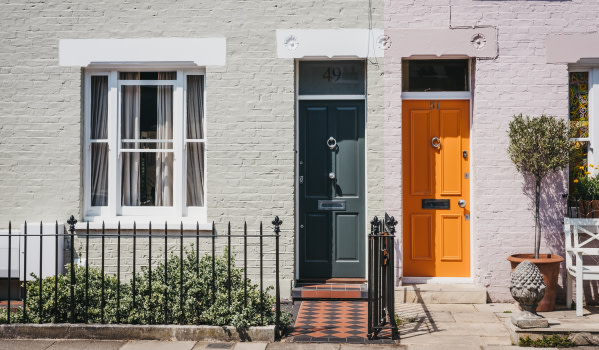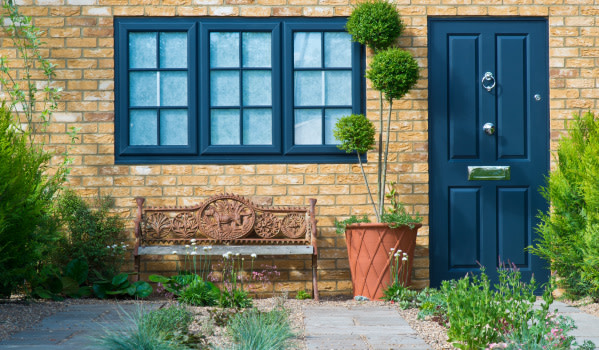Don't waste time dreaming about owning a property. Instead, roll up your sleeves and start right now on maximising your chances.
Now that the English market is back open, it’s time to rethink how best to get on the property ladder.
Here are 11 steps to help you get there.
1. Find a job
How much does it cost to buy a house? The answer to this question varies for first-time buyers.
But one factor remains the same.
To qualify for a mortgage, you'll need to show you have a regular income. And, if you don't have one already, this means getting a job.
Especially if you've recently graduated, it might be tempting to hold off for the career you want to pursue over the long-term. But if your main goal is to buy a property, you might need to take any job now.
2. Pay down debt
Once you have money coming in, the first priority in order to get on the property ladder is to pay down any debt.
One of the factors that mortgage lenders consider in their affordability assessments is how much you spend every month on unsecured debt repayments such as loans and credit cards.
It helps them assess the kind of mortgage payment you can afford.
Make sure you pay down debt in the right order, reducing the borrowings with the highest interest rates – usually credit cards – first.

3. Get into the saving habit
The average first-time buyer puts down a 15% deposit, according to our data. And with average first-time buyer properties costing around £220,000, that equates to a hefty £33,000.
Raising that kind of money may sound daunting, but the sooner you start saving, the sooner you'd start to build your deposit fund.
Watching the pennies could also increase your chances of getting onto the property ladder. This is because lenders take into account your spending patterns when assessing affordability.
In other words, if you're buying takeaway coffees every day or blowing money on three nights out a week, it could count as regular expenditure and have a negative impact on the amount you are allowed to borrow.
Plenty of properties are, of course, much cheaper than the average and you can get away with a minimum deposit of 5% (although interest rates will be higher) and still find a great place to live.
4. Start loving your credit score
Alongside all this, you should take steps to improve your credit score.
A credit score, which is found in your credit report, details any outstanding credit agreements you have, including credit cards, loans and mobile phone plans and looks at whether you make repayments on time and in full.
Banks and building societies use these reports to determine whether or not they want to lend to you. The two main credit reference agencies are Experian and Equifax.
You can access your credit score and in some cases your entire credit report free of charge. It is worth doing this to see what your credit report looks like and ensure there are no factual errors, which you can correct.
You can improve your score by making sure you do not miss any repayments and repaying more than the minimum each month on outstanding credit card balances.
It is also important to be registered to vote (even if it's at your parents' address) as it is harder to obtain credit if you are not listed on the electoral roll.
If you are renting from a private landlord, you can now opt to have timely and reliable payments recorded in your credit score at Experian, too.
While it may seem counterintuitive, your credit score may be lower if you have never borrowed any money, as it marks an absence of proof that you are a reliable borrower.
If this is the case, it is worth considering taking out a credit card and using it to pay for some of your regular outgoings, such as groceries, to build up a track record with credit.
If you opt to do this, be sure to clear the balance in full each month.
Remember, student loans are not factored into your credit report.
5. Research, research, research
If you are keen to get on to the property ladder it's worth spending time doing some research on your housing options and the best place to buy for your budget.
If your job is universal in its location, such as a teacher or doctor, you may want to base yourself in a popular destination where property is cheaper.
You can use Zoopla’s house price tool to explore property costs in different areas and take a look at our interactive first-time buyer affordability map below.
Knowing how much your first property is likely to cost will also help you to set a savings goal for your deposit.
6. Consider government 'leg-up' schemes
The government has introduced a raft of schemes to help people get onto the property ladder which are worth looking into.
Its flagship initiative is Help to Buy, which allows you to buy a new-build home with a deposit of just 5%, with the government offering a five-year interest-free loan for a further 20%.
This means you only need qualify for a standard mortgage of 75% of the property value, although the government will keep a 20% equity share of your home.
The loan is higher for buyers in London at up to 40% of the property’s value.
Other initiatives include shared ownership which means you can just buy a share of a home (between 25% and 75%) from a local housing association and pay rent on the proportion you don't own.
But it might not be necessary to use a government scheme at all. If you can show the right income, you can buy a home on the open market with a deposit as little as 5%. Bear in mind that interest rates on 95% mortgage deals are the most expensive on the market.
As a first-time buyer in England and Northern Ireland, you will escape paying stamp duty on the first £300,000 of a home’s purchase price so long as that's under £500,000.
Rules differ for the rest of the UK.
7. See if your parents can help
If your parents are around and are willing and able, they may be able to offer you a loan – and with any luck, repayments to the Bank of Mum & Dad will be more favourable than to a normal lender.
Even if your parents are not able to lend you a lump sum for a deposit, there are other ways they may be able to assist.
A number of lenders, for example, will accept parents as guarantors on your mortgage. As guarantors, they become liable for the repayment of the loan, which means the bank or building society will lend you more than you would have got otherwise.
Other schemes work by setting your parents' savings against your borrowing, reducing the amount of interest you pay overall, or reducing the amount you need to borrow in the first place.
8. Be creative
A bit of creative thinking can help speed up the rate at which you are able to save money. For example, some people opt to be property guardians while they are saving for their first home as a means of spending less on rent.
Being a property guardian involves living in an empty building, such as a disused school, and keeping an eye on it for the owners. And, in return, six out of 10 property guardians pay less than £500 a month in rent.
Others tap into the 'gig economy' to secure a second income stream, so think about any hobbies you have that could help you make money.

9. Start small
No small is too small when it comes to getting on the property ladder. In fact, it's very likely your first home will not be your dream property.
Be 100% prepared to compromise on either the amount of space you have, the location or even the property type.
Starting small – even just a one bedroom apartment – will mean getting a foothold on the property ladder quicker. This will enable you to start building up some equity, which will help you to trade up at a later stage.
Very few people regret buying a home and everyone has to start somewhere.
10. Rent out a room
Once you have purchased a home you could generate some extra cash by renting out a room if you have one spare. Under the Rent a Room scheme you are allowed to earn £7,500 a year tax-free from a lodger.
Alternatively, you could rent out storage space in your property or even your driveway if you are lucky enough to have one and you live close to a railway station.
A new property allowance launched in 2018 enables you to earn up to £1,000 a year from your home tax-free.
11. Remain realistic
Finally, when trying to get on to the property ladder, it is important to be realistic. The average age of a first-time buyer is 33, according to the most recent English Housing Survey.
So if you manage to buy your first home before that age, you're doing exceptionally well.


.jpeg)